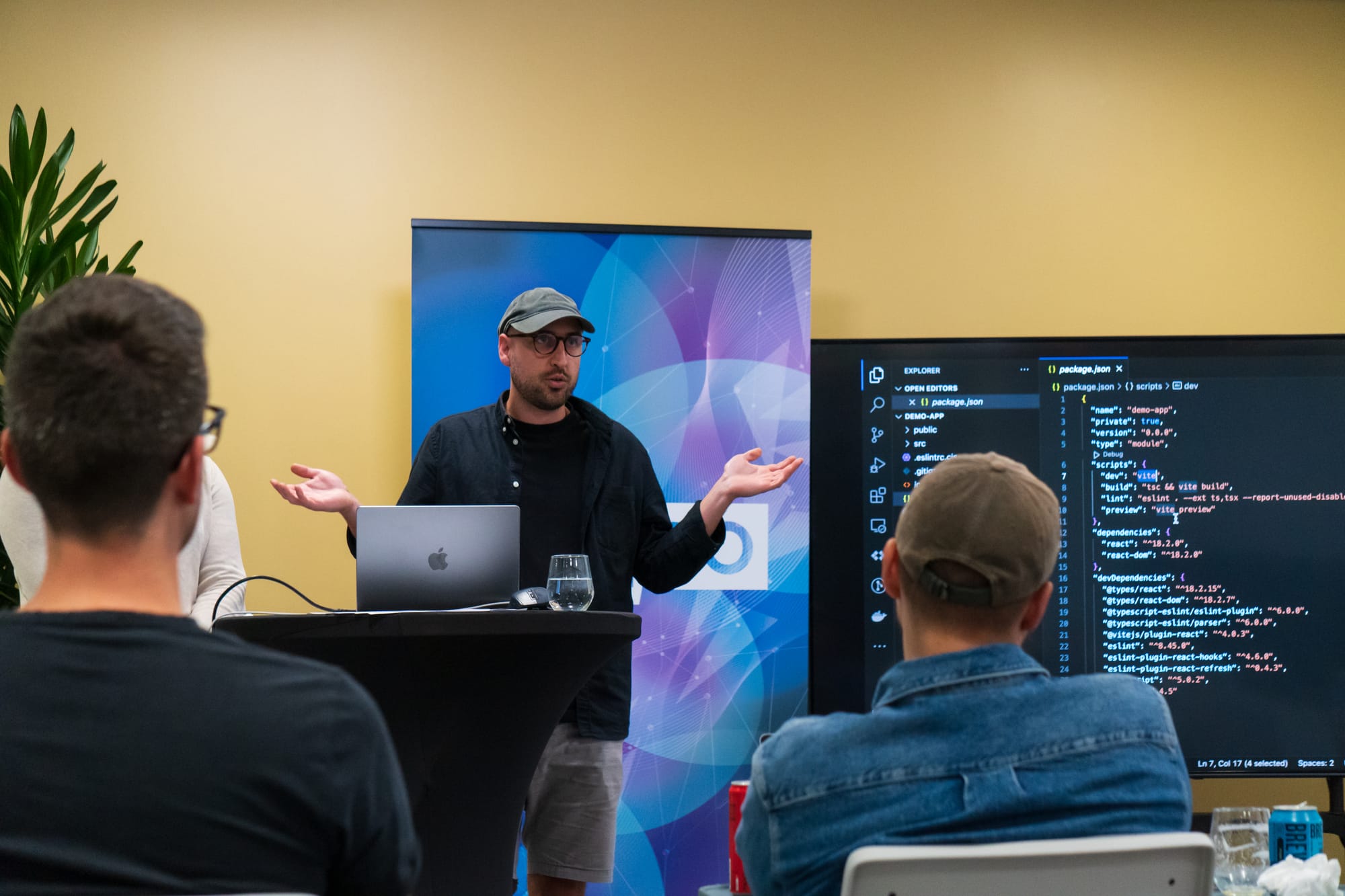Cloud Campus: What is DevOps?
DevOps is a way of working that combines coding/development (Dev) and IT Operations (Ops). In simple terms, while cloud developers focus on writing code for software, DevOps engineers focus on writing code and creating configurations that enable that software to run smoothly on servers and make the development and deployment process more efficient.
Why Do We Need DevOps?
In the past developers and operations teams often worked separately. This separation often led to misunderstandings, delays, and mistakes.
Imagine trying to build a house where the architects and builders never talk to each other – it would be a mess! DevOps solves this problem by encouraging better communication and collaboration between these two groups.

What Does a DevOps Engineer Do?
Automating Processes: They create scripts and use tools to automate repetitive tasks, like testing code or setting up servers.
Managing Servers & Services: They ensure that the servers and services are set up correctly and are working well.
Monitoring Systems: They keep an eye on software and servers to make sure everything is running smoothly and fix any issues that come up.
Improving Workflow: They help make the process of developing, testing, and releasing software more efficient.
The Blurring Lines: DevOps Engineers and Cloud Developers
In the modern tech landscape, the roles of DevOps engineers and cloud developers are increasingly overlapping. We still need dedicated roles but we need to understand each other's work as well.
Shared Knowledge: DevOps engineers and cloud developers need to understand each other's work to create seamless workflows. Developers have to understand CI/CD pipelines, automated testing as well as monitoring. While DevOps engineers must understand how the developers utilize cloud native services and the role of code in the modern cloud architecture. This shared knowledge enhances collaboration and reduces the chances of miscommunication.
Joint Responsibilities: Both roles now share responsibilities for the entire software lifecycle. From writing and testing code to deploying and monitoring applications, the lines between where development ends and operations begin are becoming less distinct.
Enhanced Skills: Modern DevOps engineers often need to write scripts and understand coding principles, while cloud developers need to automate deployment processes and manage infrastructure. This dual skill set makes each professional more versatile and capable of tackling a wide range of tasks.
By working closely together, DevOps engineers and cloud developers ensure that software is developed, deployed, and maintained efficiently. This collaboration results in faster delivery of high-quality software that meets the needs of users and businesses alike.
Real-World Example

Think of one of the apps you use on a regular basis, like Slack, Teams, or Discord for example. Behind the scenes, a DevOps team plays a crucial role in ensuring the app runs smoothly and continuously improves.
Feature Development: Developers create new features, such as a new way of sending even more GIFs or smileys to your colleagues. These features are written in code and then often automatically tested by DevOps tools to ensure they work correctly.
Continuous Integration (CI): The new code is merged with the existing codebase. Automated tests run to check for any issues. This ensures that any problems are identified and fixed quickly before they affect you as the end users.
Continuous Deployment (CD): Once the new features pass all tests, they are automatically deployed (released) to the app and you can enjoy the new feature faster, instead of having to wait for major releases like we had in the old days.
Monitoring: After the new features are live, the DevOps team continuously monitors the app’s performance. They look at metrics like app speed, server load, and user feedback to ensure everything is running smoothly.
Feedback Loop: Based on the monitoring data and user feedback, the DevOps team makes necessary adjustments. For instance, if users report a bug or if the app slows down, the team can quickly identify the issue and deploy a fix.
Scaling: If the app suddenly gets a surge in users, because everyone now wants to send the new GIFs or smileys, the DevOps team ensures the app can handle the increased load. They do this by automatically adding more resources to keep the app running smoothly.
Imagine if the app adds one simple feature that everyone wants, like biometric login for your phone so that you do not need to remember passwords. Thanks to DevOps practices, the new login can be added quickly and smoothly into the app, and you as a user can start using it without having to wait for a long release cycle.
Conclusion
DevOps is all about bringing people and technology together to create better software, faster. It’s like having a well-coordinated team that builds, maintains, and improves a house, ensuring it’s always in top shape. By understanding and applying DevOps principles, companies can deliver high-quality software efficiently and reliably.
At GESHDO, we embrace cloud-native practices to optimize time-to-market as well as reduce costs. Embracing cloud-native isn't just about technology—it's about setting your business up for success in a digital-first world.
🔗 Curious about how you can develop new solutions using cloud-native development and DevOp, or perhaps you want some help understanding how you and your company can benefit from the cloud? Reach out to me or one of my colleagues and we will help you turn your vision into reality.


